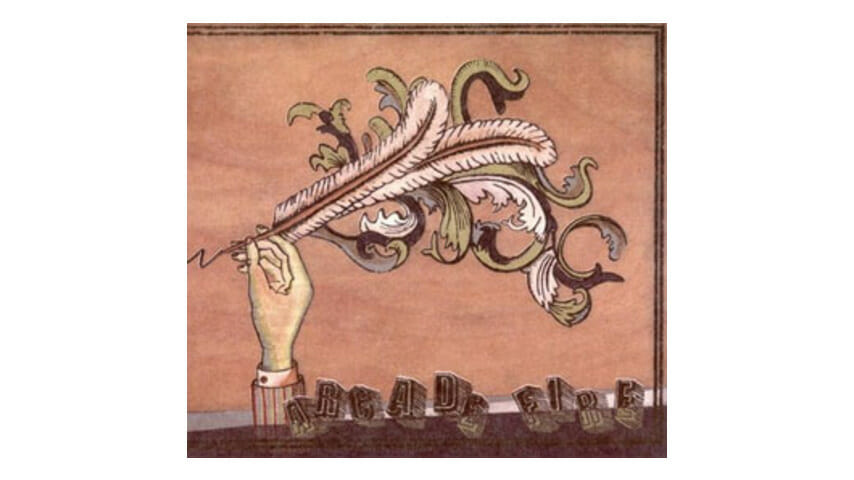
By now the dark corners of childhood/adolescence should be a dead subject to serious artists. The disappointments of youth and shortcomings of family have been co-opted as lyrical fodder by nü-metal bands like Staind and Full Devil Jacket, who seem intent on assigning blame to the most obvious authority figures—their parents. This fact alone should be enough reason to let it lie.
However, the full-length debut from Montreal-based Arcade Fire, forebodingly titled Funeral and sung in both English and French, explores this emotional territory in a way that is musically dynamic and emotionally complex. Recorded mostly during the harsh Canadian winter and partly inspired by the deaths of band members’ relatives, the album never descends into morbid self-absorption as it plumbs the disappointments of youth and family; Funeral is more about life than death.
Its track listing arranged into a series of “neighborhoods,” implying a kind of suburban claustrophobia, Funeral brims with dreams of escape, starting with “Neighborhood #1 (Tunnels),” in which singer Win Butler describes children running away to form new families. In “Neighborhood #2 (Laika),” the narrator’s older brother leaves the household and is not expected to return alive. And on “In the Backseat” Régine Chassagne (to whom Butler is married) finds a kind of asylum in not having to drive or speak: “I can watch the countryside,” she sings in an ethereal voice, “and I can fall asleep.”
Butler’s tortured delivery, just shy of histrionic, has garnered comparisons to Conor Oberst and Neutral Milk Hotel’s Jeff Mangum, but his closest American touchstone may actually be the Isaac Brock of “Trailer Trash;” like the Modest Mouse singer, he’s not content merely to remember his upbringing, but must re-imagine it as a means of settling accounts.
Arcade Fire proves as dynamic and inventive musically as Butler is lyrically. Psycho strings stab at the chorus of “Laika.” A tea whistle blows comfortingly throughout “Neighborhood #4 (Kettles).” “Wake Up” begins with a stomping Led Zeppelin march that emerges into the cathedral grandeur of choir and strings, then steps into The Jam’s “Town Called Malice.”
Funeral employs measured crescendos and releases that never proceed in a straight or predictable line through one song, but often arc across several songs, which consequently bend and change abruptly. Following the intense lead-off tracks, the relatively somber “Une Année sans Lumière” finds Butler sounding suddenly vulnerable and hopeful; then it veers into a sped-up coda of grinding guitars and forward-motion drums, which provides a segue into the tenser “Neighborhood #3 (Power Out).”
Funeral is obviously informed by nostalgia, but Arcade Fire manages to transcend I Love the ’80s retro fever and locate something more personal and meaningful, outside the sprawl of pop culture. In doing so, the band has created an unquestionably sincere and autobiographical work of art, no matter how coded the lyrics prove at times. “Our bodies get bigger,” Butler sings, “but our hearts get torn up.” Pain and loss are inevitable in life, but music this grand helps both artist and audience persevere. Funeral must have been cathartic to make; it’s certainly cathartic to hear.